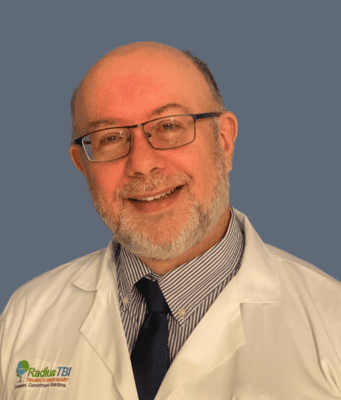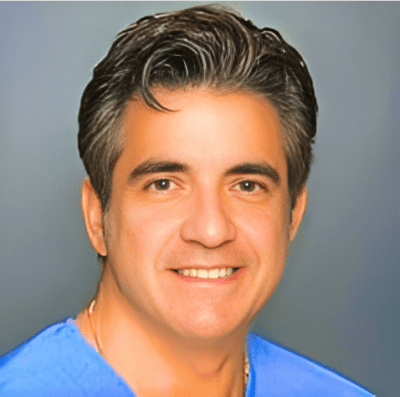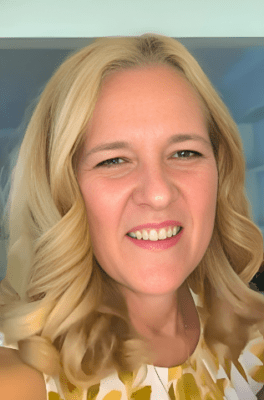
Jana Downum, PhD, MHC, LPC-S
PSYCHOPHYSIOLOGIST/ BOARD CERTIFIED IN BIOFEEDBACK
Dr. Jana Downum is a highly skilled psychophysiologist and board-certified biofeedback expert. With a rich background as a counselor and biofeedback therapist, she has dedicated her career to aiding patients with acquired brain injuries. Dr. Downum's research, utilizing Functional Near-Infrared Spectroscopy and biofeedback co-treatment, has expanded our understanding of brain injury. Additionally, her proficiency as an Eye Movement Desensitization and Reprocessing (EMDR) therapist brings healing to many.
JANA DOWNUM, PHD, MHC, LPC-S
EDUCATION:
PhD: Doctor of Philosophy, Mind-Body Medicine, College of Integrative and Health Sciences, Saybrook University, San Francisco, CA
MA: Industrial/Organizational Psychology, Texas Tech University, Lubbock, TX
BA: Major-Psychology, Minor-Business, Magna Cum Laude, Texas Tech University, Lubbock, TX
EXPERIENCE:
- Counselor, Biofeedback Therapist, and Research Assistant Pate Rehabilitation Counselor and Biofeedback Therapist working for patients with acquired brain injury Research Assistant studying acquired brain injury using Functional Near-Infrared Spectroscopy and Cotreatment with Biofeedback.
- Eye Movement Desensitization and Reprocessing (EMDR) Therapist
BOARD:
- Texas Licensed Professional Counselor and Supervisor
- Florida Mental Health Counselor
- Certified Brain Injury Specialist
- Board Certified in Biofeedback with specialties in Heart Rate Variability and surface EMG
What is a psychophysiologist?
A psychophysiologist is a professional who specializes in the study of the relationship between psychological processes and physiological responses in the body. They use various techniques, including biofeedback and physiological monitoring, to assess and understand how mental and emotional states impact the body’s physiological functioning.
At Radius TBI in Florida, psychophysiologists play a significant role in assisting TBI patients. Here’s how they can help:
Comprehensive Assessment:
Psychophysiologists conduct thorough assessments to evaluate TBI patients’ psychological and physiological functioning. They measure physiological responses such as heart rate, blood pressure, muscle tension, skin conductance, and brainwave activity to gain insights into the patient’s psychophysiological status. This assessment helps identify the impact of TBI on the patient’s physiological responses and informs the development of targeted treatment strategies.
Stress and Emotional Regulation:
TBI patients often experience increased stress levels and challenges with emotional regulation. Psychophysiologists at Radius TBI assist patients in identifying stressors and emotional triggers specific to their condition. Psychophysiologists can pinpoint triggers and develop personalized strategies to manage stress and improve emotional regulation by monitoring physiological signals during different activities or situations.
Biofeedback Training:
Biofeedback is a technique employed by psychophysiologists to help TBI patients gain control over their physiological responses. Patients receive visual or auditory feedback about their bodily functions through real-time monitoring of physiological signals. Psychophysiologists guide patients in learning self-regulation techniques to modify these responses. Biofeedback training can help TBI patients manage symptoms such as headaches, pain, muscle tension, and sleep disturbances.
Cognitive Rehabilitation:
Psychophysiologists can contribute to cognitive rehabilitation efforts for TBI patients. They may use neurofeedback, a specialized form of biofeedback, to help train the brain to improve cognitive functions. By providing feedback based on the patient’s brainwave activity, psychophysiologists can assist in enhancing attention, memory, and other cognitive abilities that may have been affected by the TBI.
Integration with Multidisciplinary Team:
Psychophysiologists collaborate with other healthcare professionals, such as neurologists, neuropsychologists, and therapists, as part of the multidisciplinary team at Radius TBI. They contribute their expertise in understanding the psychophysiological aspects of TBI and work together to develop comprehensive treatment plans tailored to each patient’s needs. This collaborative approach ensures that patients receive holistic care addressing their recovery’s physical and psychological aspects.
Through comprehensive assessments, stress and emotional regulation strategies, biofeedback training, and collaboration with the multidisciplinary team, psychophysiologists assist patients in managing their physiological responses, improving emotional well-being, and supporting cognitive rehabilitation. Their expertise contributes to the holistic care provided to TBI patients, promoting their overall recovery and well-being.

Explore Concussion Treatment Options in Tampa, FL
Discover comprehensive concussion treatment options at Radius TBI in Tampa, FL. Our expert team offers solutions for a successful recovery.
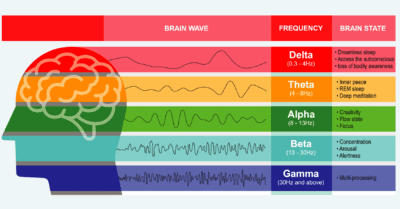
Neurofeedback vs Biofeedback: What’s The Difference?
While Biofeedback Focuses On Monitoring And Controlling Various Physiological Parameters Of The Body, Neurofeedback Concentrates Explicitly On Measuring And Regulating Brainwave Activity.
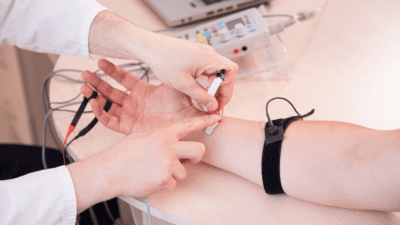
A Deep Dive into Electromyography (EMG Test): Decoding the Language of Muscles and Nerves
Electromyography (EMG) is a diagnostic procedure that plays a crucial role in unraveling the intricacies of the neuromuscular system. By measuring the electrical activity within muscles and the nerves controlling them, EMG provides valuable insights for the diagnosis and management
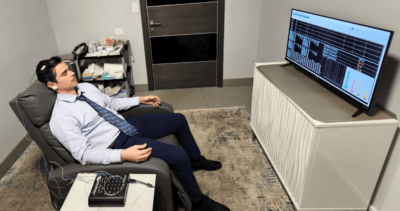
QEEG Brain Map Interpretation
In the world of neuroscience, one of the advanced tools used to understand brain function is the Quantitative Electroencephalogram (QEEG), often referred to as brain mapping. But who interprets these intricate brain maps, and why is their expertise crucial?

Identifying Personal Injury Risks and Traumatic Brain Injury at Radius TBI
Accidents can cause life-altering consequences, including traumatic brain injury (TBI). At Radius TBI, with locations in Ft. Lauderdale, Tampa, and Orlando, Florida, we prioritize early detection and comprehensive care for those who may have suffered a TBI. Protect your brain
Fort Lauderdale Medical Team
Radius TBI comprises a multidisciplinary medical team of neurology, neuropsychology, audiology, neuro-ophthalmology, psychology, and physical therapy dedicated to providing outstanding medical care and improving the quality of life in patients suffering from traumatic brain injury (TBI) and concussion.
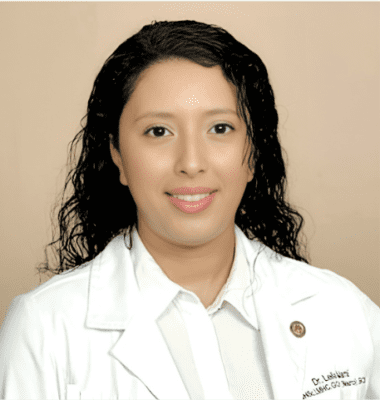
CLINICAL PHYSIOLOGIST / PSYCHOTHERAPIST / MENTAL HEALTH COUNSELOR: Leila Alami, DHSc, LMHC, GradCert(Neuro), BCN
DHSc: Doctor of Health Science, Specialty in Neurological Functions, Nova Southeastern University, College of Health Care Sciences, Ft. Lauderdale, FL
MS: Mental Health Counseling, Nova Southeastern University, Ft Lauderdale, FL


